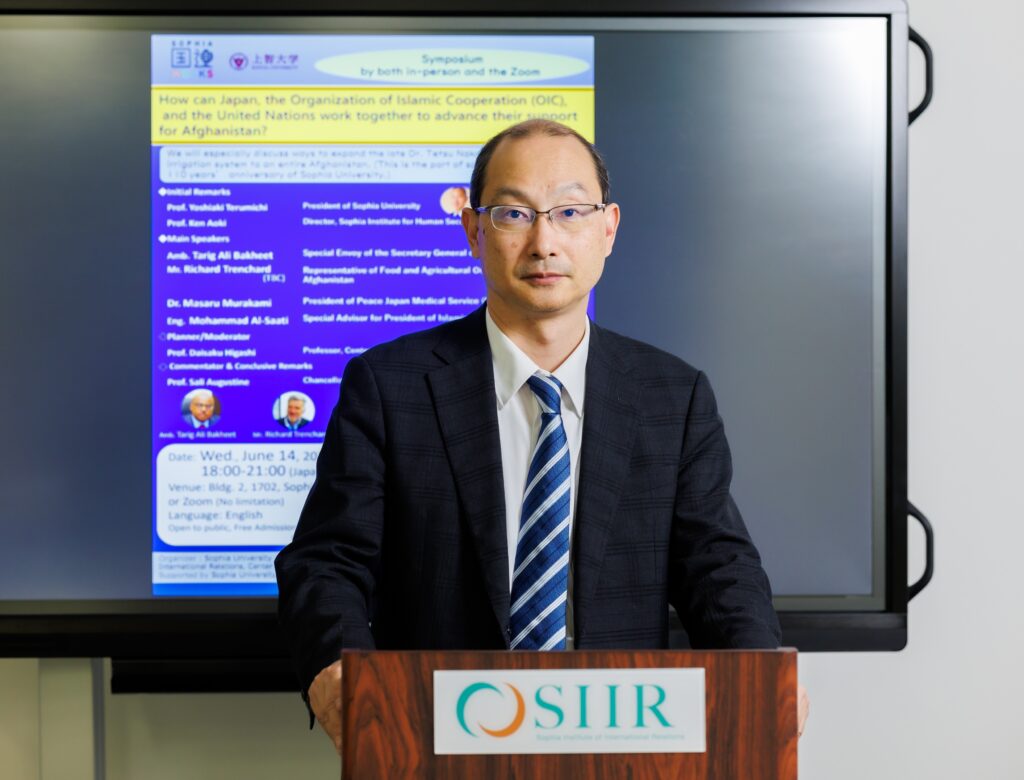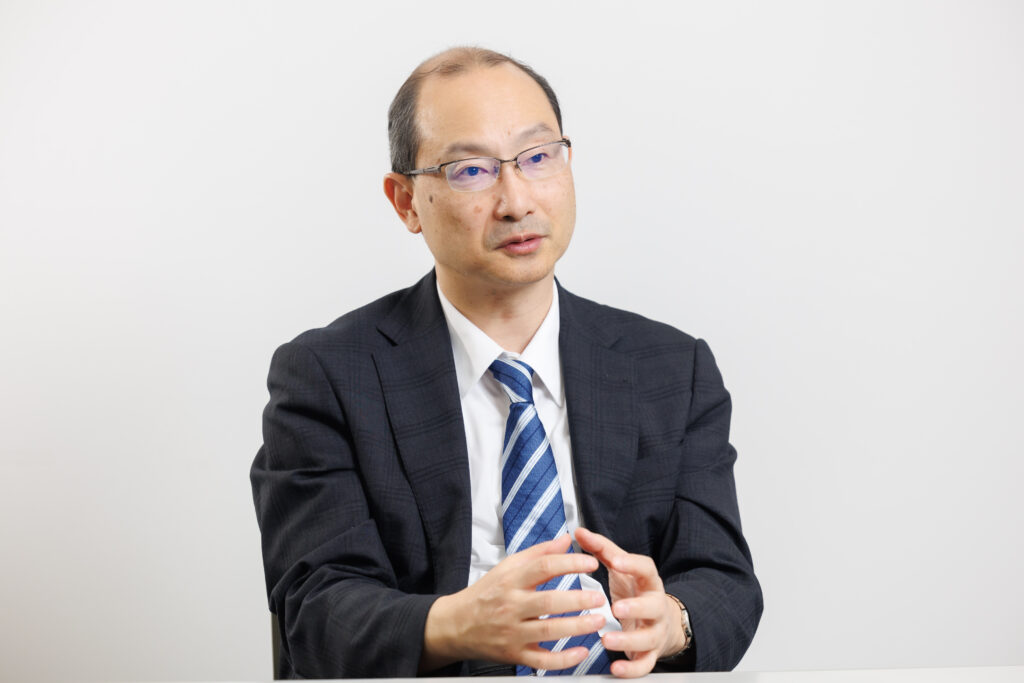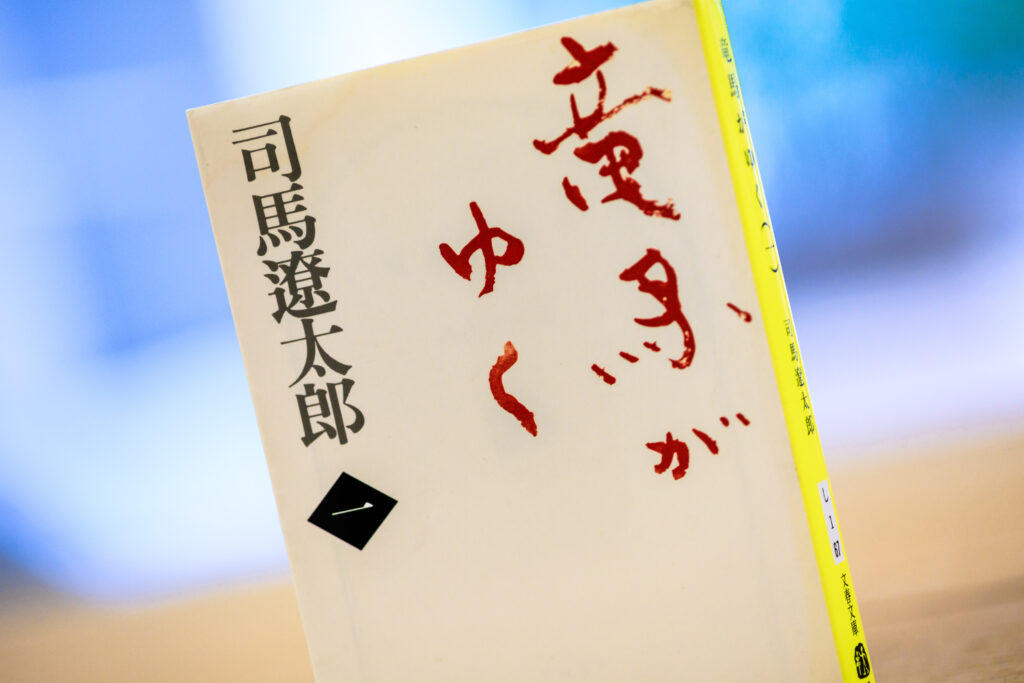
How can we end wars and build lasting peace? Professor Daisaku Higashi from the Center for Global Education and Discovery continues to seek an answer to this challenging question. By listening to voices on the ground and conducting field research, he strives to offer policy recommendations and develop systems that promote peace.
In February 2022, war erupted in Ukraine. This is considered by many to be the greatest crisis for human beings since the end of World War II. With the potential for it to escalate to World War III or a war that involves nuclear weapons, how to bring an end to the conflict in Ukraine has become a pressing issue for the entire international community.
My research focuses on two themes: mediation and peacebuilding. Mediation refers to negotiations for ending wars, while peacebuilding covers activities for building lasting peace in the aftermath of the wars.
To date, I have visited many conflict areas including South Sudan, Iraq, Afghanistan, and Timor-Leste. There, I conduct research while actively engaging with people on the ground, exchanging opinions with vice presidents, cabinet ministers, and other local officials, as well as conducting interviews and surveys with the general public.
The need for an inclusive approach in peacebuilding

Every war has its own unique historical context, and there is no single method for bringing peace. However, by conducting cross-sectional analyses of various conflicts in modern times, we can find valuable lessons and guiding wisdom.
Let us consider peacebuilding as an example. Once a conflict has been brought to an end, if it is not possible to establish a legitimate government that has the trust of the citizens, then the country will return to a state of war.
Through studying several post-conflict countries, I identified four factors that are critical for constructing legitimate governments in the process of peacebuilding: One, the presence of the United Nations (UN) as an impartial third party: two, an inclusive political system that does not exclude specific ethnicities or political forces; three, improvement in livelihoods and services; and four, the establishment of the police and military.
When all four of these factors are in place, it will be easier to uphold peace agreements and accept new governments. I consider this to be an important guideline for peacebuilding, and work to spread this approach, talking about these factors during lectures around the world, including conflict zones, and conveying them to leaders of the UN and various countries.
On the other hand, the results of my research show that there is no single formula for inclusivity in mediation during ongoing conflict. When it comes to the peace negotiations, you might not be able to reach a peace agreement at the first place if you have too many parties in the negotiations. Thus, it is necessary to be flexible with regard to inclusivity in mediation, and it may be necessary to have an agreement between the most influential parties first, and then reach to broader groups.
Japan’s potential as a global facilitator
In a previous role, I worked as a program director at NHK, Japan’s public TV station. However, at the age of 35, I decided to pursue my dream of contributing to peace and left that position.
I went on to obtain my Master’s and Doctorate degrees in political science from the University of British Columbia in Canada, and worked as both practitioner and academic researcher, taking on different positions, including UN political affairs officer in Afghanistan, and Minister-Counselor in the Permanent Mission of Japan to the UN in New York. Besides publishing my research in books and academic journals, I also offer policy recommendations.
It is said that war is the incurable disease of humanity. While we might not be able to wipe war from the face of the earth, I believe it is possible to accelerate resolutions and gradually increase the number of peaceful regions.
In conflict zones around the world, I have witnessed the high level of trust that the international community has for Japan. In various places in the Middle East and Africa, I heard words welcoming Japan’s involvement. After World War II, Japan has consistently remained a peace-loving country and continued to provide steady assistance to promote self-reliance and stability in the world.
Based on these experiences, I argue that Japan can play a role as a “global facilitator,” which would encourage dialogue between hostile groups to find common grounds for peaceful solutions. Japan can also bring together member states, international organizations, nongovernmental organizations, and experts to discuss how to address global issues which cannot be solved by a single country—such as global warming, droughts, and infectious diseases; and promote processes for finding and implementing solutions. I firmly believe that Japan can take on such a role.
The book I recommend
“Ryoma ga Yuku”(Ryoma Goes His Way)
by Ryotaro Shiba, Bunshun Bunko

The actions of Sakamoto Ryoma 150 years ago was peacebuilding in Japan. He reconciled Satsuma and Choshu—two factions that were hostile to each other—and proposed and realized a peaceful transition from the Tokugawa shogunate to the Meiji government. I came across this book when I was in junior high and have since read it several times.
-
Daisaku Higashi
- Professor
Center for Global Education and Discovery
- Professor
-
Graduated from the Faculty of Economics, Tohoku University and produced several programs as a program director at Japan Broadcasting Corporation (NHK), including “Rebuilding Iraq: Challenges of the United Nations” which received the silver medal from the UN Correspondents Association. After leaving NHK, received his Ph.D. in International Relations at the University of British Columbia. Took on several positions—such as team leader for reconciliation and reintegration in the UN Assistance Mission in Afghanistan; associate professor at the University of Tokyo; and Minister-Counsellor in the Permanent Mission of Japan to the UN—before joining Sophia University in 2016.
- Center for Global Education and Discovery
Interviewed: May 2023